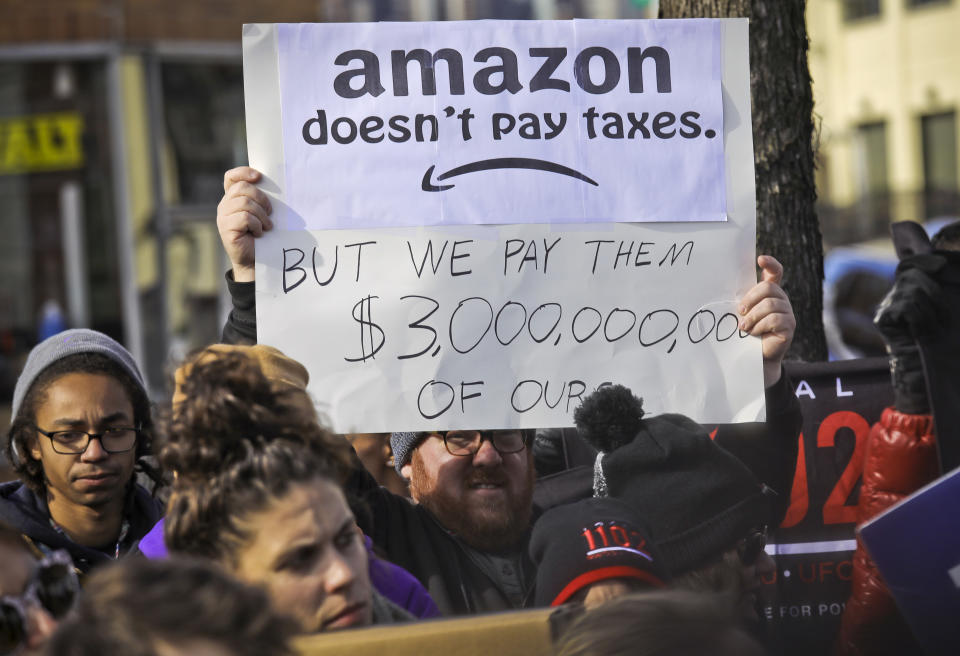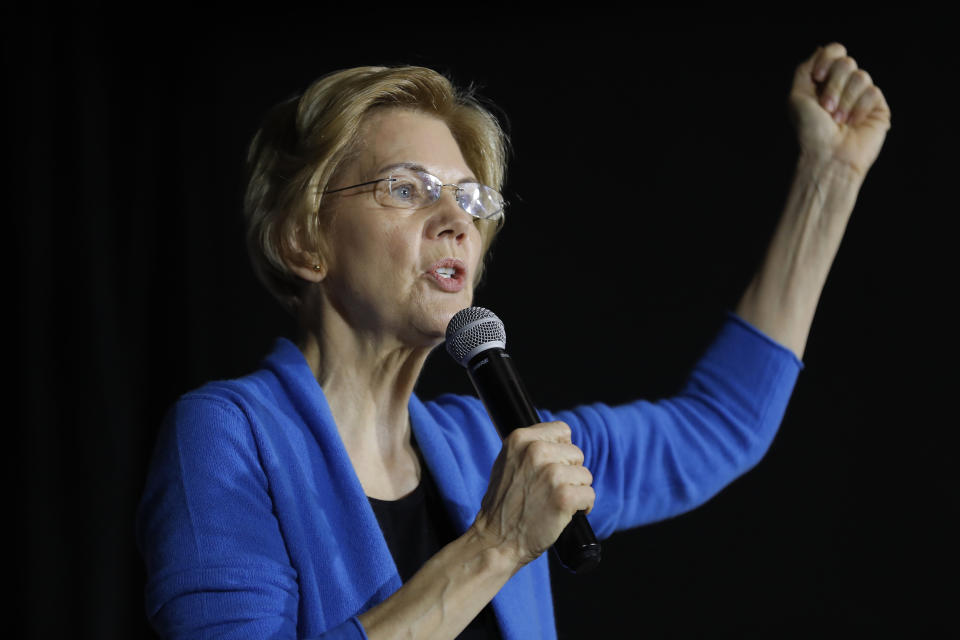Amazon and the brewing war on corporate America
The hecklers arrived, and Amazon (AMZN) split.
Amazon decided last November to locate a new “HQ2” in New York City, where it would receive $3 billion in tax breaks while creating 25,000 jobs paying an average salary of $150,000. Some local politicians felt the price was too high and campaigned against the deal. So on February 14, Amazon announced it won’t come to NYC after all. New facilities in the Washington, DC area and Nashville will likely get the business.
A bigger battle against corporations
Recriminations in New York will fly for months. But Amazon’s retreat reflects a broader war against corporate America that’s flaring in Washington, DC, state capitals, and local communities across the country. If there’s a recession any time soon, hostilities could lead to higher corporate taxes, tougher rules, and more animosity toward the haves.

In New York, Amazon’s critics employed some lousy math. They argued that $3 billion in tax breaks should be spent instead on infrastructure improvements like subway upgrades, or community improvements. But there’s no pot of money to divvy up. Most of those tax breaks, which are available to many qualifying companies, would have been reductions in taxes paid over a 15- to 25-year time frame. If there’s no company paying taxes, there are no tax breaks.
New York will survive, but it will forego nearly $4 billion worth of Amazon payroll, per year. And this comes, ahem, at the same time New York governor Andrew Cuomo is complaining about falling tax revenue in his state—where the top income tax rate is 8.82%—as the wealthy move to Florida, Texas, and other states with no income tax.
Big companies like Amazon have grown adept at playing cities and states against each other. It might backfire, though, as politicians and their working-class constituents get sick of the gamesmanship. Cries of revolution are overblown, but the sudden star-power of Democratic socialist Alexandria Ocasio-Cortez doesn’t seem accidental, either. The freshman Representative from New York wants a sweeping social-welfare expansion and much higher taxes to pay for it. Target: Corporate America.
Democratic senators Chuck Schumer of New York and Bernie Sanders of Vermont are pushing for new legislation to limit corporate stock buybacks, amid a record-setting pace of buybacks in 2018, after the Trump tax cuts went into effect. This is probably misguided policy, but it addresses a widespread belief that businesses benefited far more from the Trump tax cuts than ordinary people. So, punish them.

Democratic Sen. Elizabeth Warren of Massachusetts, who’s running for president, wants a new tax on financial transactions and new regulations making companies more accountable to workers. Many Democrats now favor expanded Medicare, which will necessitate new taxes on somebody—and it won’t be the middle class. Then there’s the “Green New Deal,” legislation sponsored by Ocasio-Cortez and Democratic Sen. Ed Markey of Massachusetts, which aims to phase out the fossil-fuel industry and heavily subsidize new alternative-energy businesses. Billions and maybe trillions in new tax revenue would be needed. Know anybody who has some money?
The pendulum may have swung too far
The political pendulum is always in motion, and at the moment it’s on the corporate side, thanks to a sharp cut in business taxes by Trump and his fellow Republicans, and Trump’s deregulatory agenda. But it may have swung too far in one direction, with a proportionate swing in the other direction coming.
In Wisconsin, voters are coming to terms with what may be a sham deal involving Taiwanese manufacturer Foxconn, which secured nearly $4 billion in state and local subsidies to build factories that would supposedly employ 13,000 workers. Foxconn is falling short of hiring targets and now says it might convert the project into a research operation that would employ far fewer people. It won’t get the subsidies if it doesn’t provide the jobs, but the controversy will further sour voters on largesse offered to corporations.
Maybe this animosity toward corporate America will blow over. But it might also intensify—especially when there’s another recession and the inevitable layoffs occur. Some economists and futurists warn of new waves of dislocation, as technology increasingly replaces human workers. Corporate America always adapts, but so does the body politic. And if corporate America seems like the problem, it will face a lot more hostility than New York showed Amazon.
Confidential tip line: [email protected]. Click here to get Rick’s stories by email.
Read more:
Trump is right about the “Green New Deal”
Trump’s attacks on “socialist” Democrats might just work
Medicare for all is not going to happen
3 problems with Elizabeth Warren’s wealth tax
Trump is about to clobber the auto industry
Those Trump bankruptcies are starting to make sense
Rick Newman is the author of four books, including “Rebounders: How Winners Pivot from Setback to Success.” Follow him on Twitter: @rickjnewman
